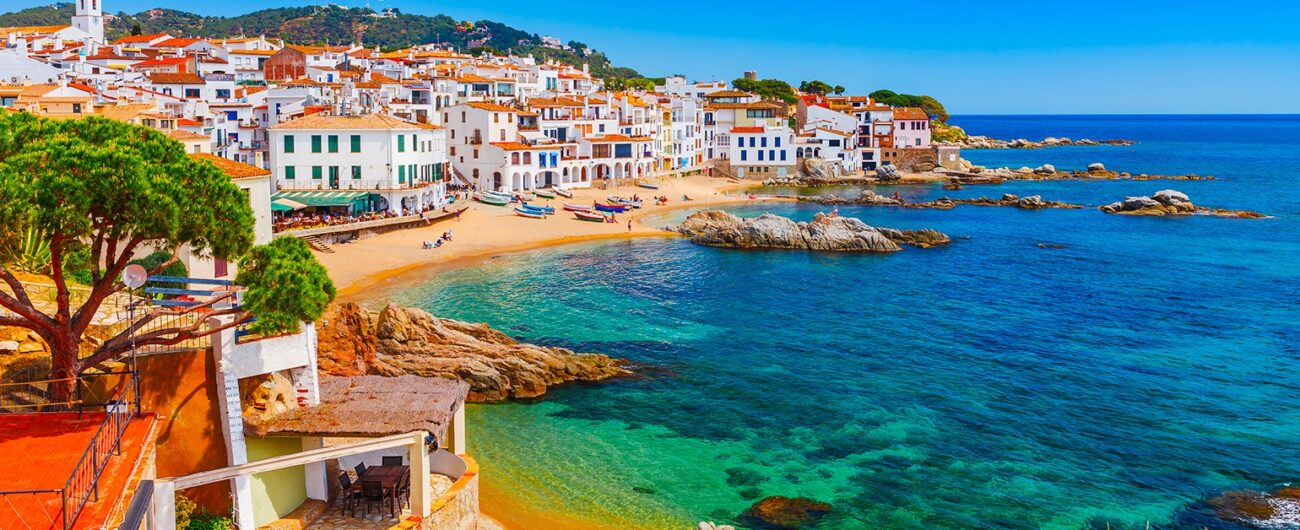Spain, a perennial favorite among global travelers, continues to enchant with its rich tapestry of culture, cuisine, and coastline. In 2024, the country welcomed a record-breaking 94 million visitors, underscoring its status as a top-tier destination. However, this surge in tourism has prompted Spanish authorities to implement a series of new regulations in 2025 aimed at promoting sustainable tourism and preserving the quality of life for residents.
Enhanced Entry Requirements
For non-EU travelers, including those from the UK, USA, and Canada, Spain has tightened its entry protocols. Visitors must now present a passport valid for at least three months beyond their planned departure date, proof of travel insurance, a return or onward ticket, evidence of sufficient funds to cover their stay, and confirmation of accommodation bookings. Those staying with friends or family may need to provide a ‘carta de invitación’ or proof of their host’s address.
Looking ahead, the European Travel Information and Authorization System (ETIAS) is set to be introduced in 2026. This system will require visa-exempt travelers to obtain prior authorization before entering the Schengen Area, including Spain. Additionally, the Entry/Exit System (EES), expected to launch in October 2025, will automate border control procedures, replacing traditional passport stamps with biometric data collection.
Accommodation Regulations
In response to housing shortages and rising rental prices, Spain has introduced stricter regulations on short-term rentals. Property owners must now register in a national database and obtain permits before listing their properties on booking platforms. Cities like Barcelona plan to phase out all short-term tourist rentals by 2028, while Malaga has restricted new rentals in neighborhoods where they exceed 8% of the housing stock.
Accommodation providers are also required to collect detailed personal information from guests, including passport details, contact information, and payment methods, to enhance security measures.
Tourist Taxes
Several regions have revised their tourist tax policies. In Barcelona, the tax for luxury hotels has doubled to €7 per night, with a municipal surcharge potentially increasing the total to €15 per night. The Balearic Islands have raised their overnight charge to €6 per person during peak seasons. Other cities, such as Santiago de Compostela and Toledo, have introduced new tourist taxes ranging from €1 to €2.50 per person per night.
Behavioral Regulations
To address concerns over public disturbances, several cities have implemented behavioral regulations. Barcelona has extended its ban on pub crawls to the Eixample district, while the Balearic Islands have restricted alcohol consumption in major resorts, prohibiting street drinking and limiting alcohol sales during certain hours.
In Soller, Mallorca, a new low-emission zone restricts tourist vehicles from entering the town center, encouraging visitors to use designated parking areas on the outskirts.
Beach and Smoking Policies
Beachgoers should be aware of new regulations banning the use of tents, gazebos, and similar structures on certain beaches to ensure safety and accessibility. Additionally, smoking and vaping have been prohibited on numerous beaches across Spain, including those in Barcelona, the Balearic Islands, and the Canary Islands, to promote a cleaner environment.
Why Spain’s 2025 Travel Rules Are a Game-Changer for Tourists
Spain’s travel rules for 2025 represent a significant shift in how the country manages tourism. With more than 94 million visitors in 2024 alone, authorities have introduced tighter international travel updates to safeguard communities, reduce environmental stress, and enhance the overall visitor experience.
From stricter entry requirements and digital border systems to new regulations on short-term rentals and tourist taxes, Spain’s travel rules are more comprehensive than ever. These updates are not just about control—they’re about balance. Spain is striving to maintain its reputation as one of the world’s most-loved destinations while protecting its cultural heritage and improving the quality of life for its residents.
For holidaymakers, these changes mean a more transparent and responsible travel experience. Understanding the new Spain travel rules in advance can help avoid penalties, streamline your trip, and even unlock better local experiences. Whether it’s navigating biometric border checks, booking licensed accommodation, or respecting beach bans and tourist conduct rules, being informed is key.
These international travel updates are especially crucial for non-EU visitors, who may now need to show travel insurance, return tickets, and sufficient funds. Cities like Barcelona and regions such as the Balearics are also cracking down on overtourism with increased taxes and behavioural codes.
As travel to Spain becomes more regulated, it also becomes more meaningful. A bit of preparation ensures your summer holiday is not only enjoyable but also respectful of the destination you’re exploring. So, before packing your bags, be sure to review Spain’s travel rules thoroughly.
Spain’s updated travel regulations reflect a concerted effort to balance the influx of tourists with the well-being of local communities and the preservation of cultural and natural resources. By staying informed about these changes, travelers can ensure a respectful and enjoyable experience in this vibrant country.
Note: Travelers are advised to consult official sources or contact their accommodation providers for the most current information on Spain’s travel rules and international travel updates.


